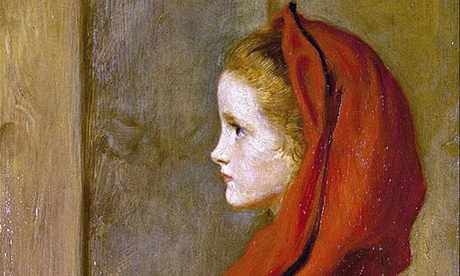
Marina Warner is our doyenne of fairy stories, the British equivalent to America’s Jack Zipes and Maria Tatar, only, it must be said, with a better prose style than either. Her book, From the Beast to the Blonde, was a memorable bestseller, and here she follows it and a lifetime of investigation into story-telling with Once Upon a Time: A Short History of the Fairy Tale.
Once obscure, the field has become quite a crowded one, with Sara Maitland’s Gossip from the Forest and Philip Pullman’s Fairy Tales from the Brothers Grimm published recently, but Warner’s book is a little gem. What makes her special is her way of phrasing insights into the nature of the genre and into particular stories; her scholarly knowledge is not just worn lightly but presented with a flourish. “Imagine the history of fairytale as a map, like the Carte du Tendre…drawn by Parisian romantics to chart the peaks and sloughs of the heart’s affections,” she begins, captivatingly In 10 succinct chapters, she gives us an overview of pretty much all that we need to know about past and current thinking, from Bruno Bettelheim’s influential Freudian insights to Philip Pullman’s stating that “there is no psychology in a fairytale”.
Fairytale tropes remain a strong feature, not only in children’s literature (the best of which remain strongly magical, as Toby Ibbotson and Kate Saunders show in new books this autumn) but in stories by a host of English and American novelists whose books are devoured by both adolescents and adults.
It’s a shame Warner doesn’t delve into these, as from The Hunger Games to The Goldfinch they show how the fairytale remains inspirational. Even if few believe in fairies, we still need what Warner terms the “heroic optimism” of the genre. Their very weirdness and irrationality tells us that this is happening in a world elsewhere, where what Angela Carter termed, marvellously, “house-training the Id” can happen apart from real life.
So potent is this force that at times one yearns for art and entertainment to move away from what seems to have become a default setting. It’s good that controversial films such as Gone Girl have shown that you don’t need endless special effects to be a hit, but can’t we have a story that doesn’t make reference to the fairytale, whether in seriousness, satire or parody? For a mirror to be a mirror, an apple just a fruit and a wood nothing more than a collection of trees now seems to require a convulsion of the imagination, especially in America, where the gothic has triumphed over all else.
One of the most interesting aspects of reworking fairytales is that it tends to be practised by idealists and reformers, whether devout Christians, such as CS Lewis, or socialists, such as JK Rowling. The defining dynamic of the fairytale is optimism (as opposed to the tragic tendencies of the myth), but this has encouraged bowdlerisations from the dark and gruesome aspects of many originals – Dickens hated the way the illustrator George Cruikshank softened stories, the brothers Grimm tinkered to “excuse the men and blame the women”, and the ambiguity of the fairytale led to them being twisted into Nazi propaganda, with Little Red Riding Hood being saved from a Semitic wolf.
Happily, they have also been transmuted by modern feminism: Neil Gaiman’s striking novella, The Sleeper and the Spindle, out this month, conflates and subverts Snow White and Sleeping Beauty into a tale of female courage and choice. So, too, does Disney’s Frozen, whose emphasis on the love between sisters has helped power it to iconic popularity.
Angela Carter, the most subversive storyteller of all, was sceptical that her writing could make any difference in a capitalist culture, fearing that it would end up “absorbed and de-fanged” – but the fairytale seems too resilient for that. Like its heroes and heroines, it will change, survive and triumph.
Once Upon a Time is published by OUP (£10). To order it for £8.49, click here

